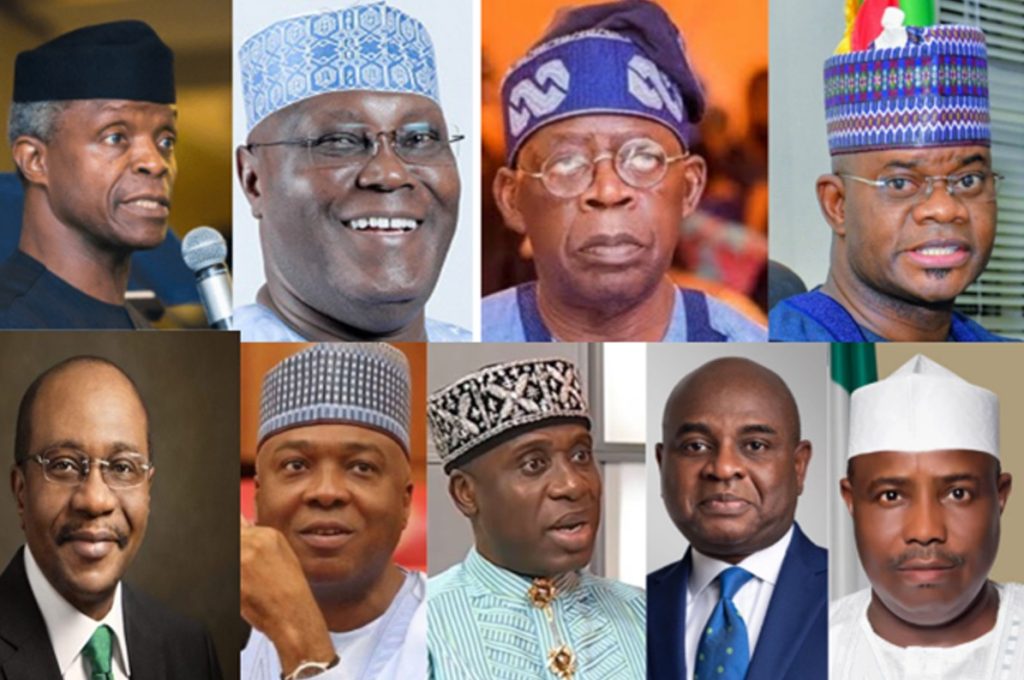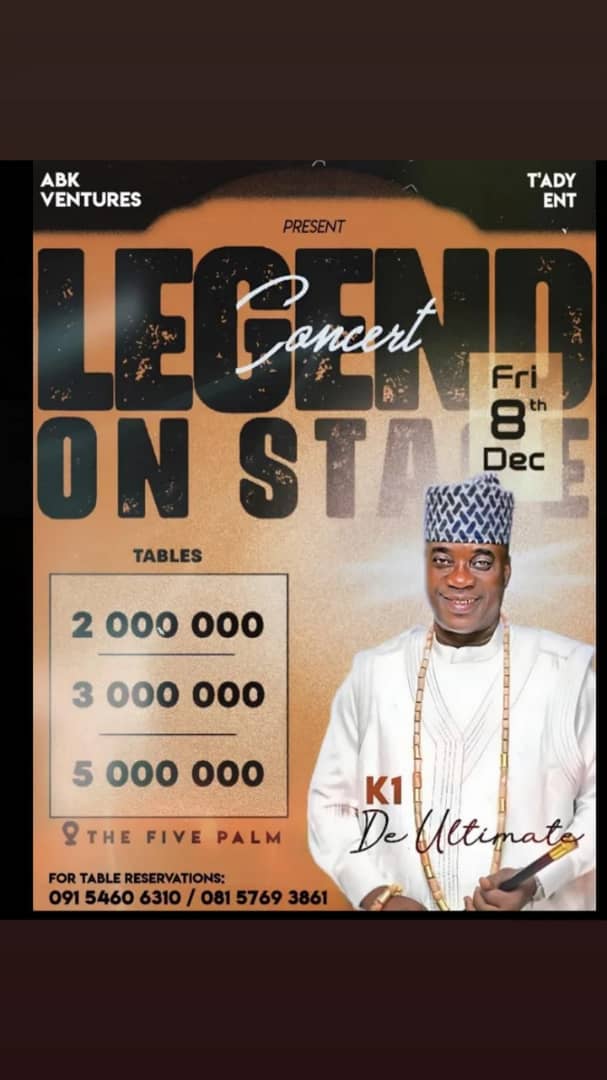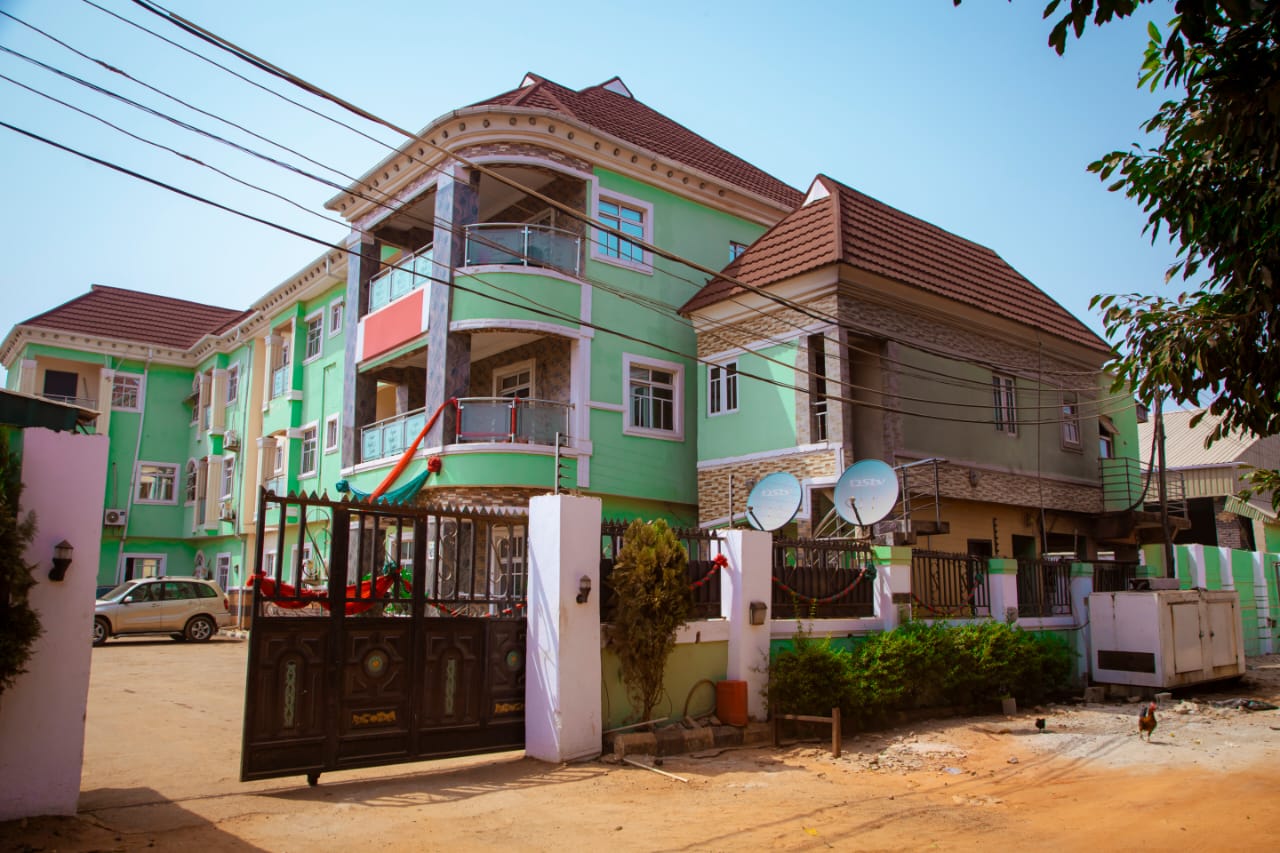Nigeria, Let’s Take A Step Back To Bring Back Good Luck
With the recent events in Nigeria, Africa’s Giant, and the current ruling party, The All Progressives Congress (APC), Nigerians and foreigners who have spent a significant amount of time in the nation are not happy.

Aside from the country’s economic crisis, which has impacted every sector, the West African nation is also dealing with tremendous insecurity, unemployment, and public-funds looting, among other issues. This was not the situation prior to the APC’s takeover in 2015.
Many people decried the ruling People’s Democratic Party (PDP) and its candidate, Goodluck Ebele Johnathan, and demanded a change in leadership because they were “weary.” The APC seized the opportunity and vowed to implement some of the changes if elected.
Well, here we are now and the change that was clamored for has neither been achieved nor even talked about anymore.
WHO IS GOODLUCK EBELE JONATHAN?
Goodluck Ebele Azikiwe Jonathan GCFR, GCON (born November 20, 1957) is a Nigerian politician who was the country’s president from 2010 to 2015.
He was the first incumbent president in Nigerian history to concede defeat in an election after losing to former military head of state General Muhammadu Buhari in 2015.
Prior to that, he served as Vice President of Nigeria from 2007 to 2010 under Umaru Musa Yar’Adua’s administration, and as Governor of oil-rich Bayelsa State from 2005 to 2007.

Nothing could save President Goodluck Jonathan in the end. Neither the belated effort to reverse Boko Haram’s military gains using foreign troops and mercenaries.
Neither was his last-minute ‘cash and carry’ assault, in which his aides distributed massive sums of money to traditional rulers and allied political benefactors around the country.
Not even the postponement of the election from February 14 to March 28, a six-week extension justified in lines of military necessity, but all too clearly a last-ditch effort to derail the opposition All Progressives Congress, as it turns out (APC).
WHAT DID GOODLUCK JONATHAN ACHIEVE?
Mr. Jonathan, who served as president from 2010 to 2015 have some accomplishments in the administration and these accomplishments in government as listed as follows:
- Nigeria’s GDP increased to $503 billion in 2013, making it Africa’s largest economy and the world’s 26th largest economy, up from third and fourth, respectively.
- Under former President Jonathan, Nigeria became Africa’s top destination for foreign direct investment, with totals jumping from $24.9 million in 2007 to over $35 billion in 2014.
- The Jonathan Administration built nearly 25,000 kilometers of motorable federal highways, up from only a fourth of that in 2011.
- After a 30-year hiatus, the Jonathan Administration resurrected the country’s railways.
- Jonathan’s Agricultural Transformation Agenda put an end to fertilizer smuggling, encouraged younger Nigerians to take up farming, increased local food production, and brought the country closer to food self-sufficiency by reducing food imports by more than half. As a result of this, the United Nations’ Food and Agricultural Organization named Nigeria the world’s largest producer of cassava for the first time.
- Jonathan increased power generation to almost 5,000 megawatts in 2014, up from 2,000 megawatts in 2011.
- Food and other household products prices remained constant, while inflation was in the single digits.
- Under Jonathan’s leadership, Nigeria successfully contained the Ebola outbreak, became Guinea-worm-free, and eradicated polio, with United States billionaire and philanthropist Bill Gates hailing Nigeria’s polio-eradication efforts as one of the year’s great world achievements. With Shettima in command of the endemic states, polio has unfortunately returned to the country.
- Under Jonathan’s leadership, Nigeria’s life expectancy increased from 47 years in 2010 to 54 years in 2015.
- CNN Money predicted that Nigeria’s GDP would grow at 7% in 2015, behind China at 7.3 percent and Qatar at 7.1 percent, just before Jonathan left office
These accomplishments were well-known and appreciated by all Nigerians, as can be seen, today. However, in order to receive more and better from the government, Nigerians plotted their own demise and fell into the wrong hands, for which they are now paying a high price.

NIGERIA’S CURRENT DISPENSATION
Nigeria is a bellwether for the continent, as it is Africa’s most populous country, largest economy, and most notable democracy. A faltering economy increased insecurity, and violent conflicts all undermine the country’s democratic growth.
What are the three most pressing issues confronting Nigeria? What is the country’s single most serious problem? What are the most important issues that explain why Nigeria stays the way it is, as a country known for its ‘potential’ rather than its accomplishments? Simply expressed, what is the single most significant impediment to Nigeria realizing its full potential? We will be talking about it below.
As reported by Premium Times, the following are the country’s most pressing concerns:
Violence in the Northwest

Across multiple states in Nigeria’s northwest area, armed groups known as bandits carried out massive massacres, kidnappings, and looting. These organizations arose as a result of years of strife between nomadic herders and farming populations.
Separatist Agitations in the South
Separatist movement by the Indigenous People of Biafra (IPOB) in the southeast and the Yoruba Nation in the southwest exposed the country’s deepening divides and tensions, which the authorities occasionally responded to with disproportionate force. Nnamdi Kanu, the head of the IPOB, was captured abroad and extradited to Nigeria to face charges of treason and terrorism.
Armed Islamists’ Abuses in the Northeast
In March, suspected ISWAP fighters assaulted a UN base and humanitarian center in Borno State’s Dikwa Local Government Area, setting fire to aid workers’ offices, destroying government structures and clinics, and kidnapping at least seven humanitarian workers.
Serious Crimes Accountability
After finding “reasonable basis to believe” that Boko Haram and its breakaway factions, as well as Nigerian security forces, had committed war crimes and crimes against humanity, the ICC’s chief prosecutor announced in December 2020 that the Boko Haram-related conflict in the northeast warranted a full ICC investigation.
Freedom of Expression, Media, and Association
The Nigerian Communications Commission (NCC), the telecommunications regulator, recommended that access to Twitter be suspended after the Twitter ban was announced in June. Nigerians retaliated by circumventing the restriction by utilizing virtual private networks (VPNs).
Nepotism and Favouritism
This is due to the government’s and its agencies’ apparent preference for one tribe’s people or territories over another. There is an underlying perception that the country’s ethnic majority controls its affairs, making minorities feel like second-class citizens in their own country, not through any fault of their own, but simply because they are few.
Resource Management
When it comes to the control of the country’s natural resources, tensions are common. Across the country, organizations have formed to vie for ownership of natural resources on their territory.
Terrorism
Terrorism is a big source of concern in Nigeria on a daily basis. Boko Haram’s daily massacres, kidnappings, bombings, and rape across the country are extremely disturbing.

Unemployment
Unemployment is spreading like a virus in Nigeria. There has been a significant rate of unemployment as a result of the economic recession; no jobs are accessible for the youngsters; 24 percent of Nigerians are unemployed; now, let’s turn our attention to the youths. Between 2016 and 2021, unemployment grew from 1.33 percent to 9.01 percent, according to Macrotrend.
Inflation
Prior to 2015, the country’s inflation rates remained in the single digits, despite the fact that observers thought they were excessive at the time. For example, for the entire year of 2014, the country’s inflation rate fluctuated between 7.7%, which was the lowest, and 8.5 percent, which was the highest.
When Mr Buhari took control in 2015, the inflation rate was at 9%.
Food Prices
The rising prices of food and related commodities and services have been a prominent component of inflation in Nigeria in recent years.
This newspaper reported in February that Nigeria’s food inflation has risen to its highest level since 2008, a somber depiction of the country’s food crisis, with millions of poor citizens trying to buy food at outrageous prices on a daily basis.

GDP and Recession
The Nigerian economy has experienced two recessions from May 2015 and currently.
The economy initially entered recession in 2016, when it shrank by 2.06 percent between April and June. When the country’s crucial oil industry was affected by lower worldwide prices, the country experienced two consecutive quarters of negative growth, the traditional definition of recession. Analysts blamed the economic crisis on Mr Buhari’s refusal to establish an economic agenda and form a government, among other things.
Handling of COVID-19 Pandemic
According to Premium Times Nigeria, President Buhari was chastised for his allegedly sluggish response to the COVID-19 outbreak, postponing any direct engagement with Nigerians on the crucial public health issue.
This was in stark contrast to the previous administration’s handling of the Ebola crisis. According to USA Today, the Jonathan-led administration did not only deal with Ebola cases internally; they also welcomed outside expertise, despite the challenges, from organizations like the WHO, UNICEF, and Doctors Without Borders, which were crucial in declaring the country Ebola-free within 12 weeks of the initial outbreak.
Naira
The naira was trading at N197 against the dollar in November 2015, six months after President Buhari took office.
Between then and now, the Nigerian currency has been constantly devalued, with two such operations taking place in 2020 alone.
Policy on Foreign Exchange
The country’s foreign exchange policy has been fraught with uncertainty, particularly in recent months, owing to the Central Bank of Nigeria’s (CBN) and Ministry of Finance’s inconsistency in policy appraisal.

Debt
Since Mr Buhari gained power, the country’s debt profile has risen significantly, as budgetary projections have been mostly based on borrowing.
Nigeria’s debt profile stood at N12.12 trillion in June 2015, shortly after Mr Buhari assumed office, according to the Debt Management Office (DMO).
Nigeria’s entire national debt as of December 31, 2020 was N32.915 trillion, according to the Debt Management Office (DMO) in March 2021. The debt stock of the federal and state governments, as well as the Federal Capital Territory, are included in the figures.
End Sars Protest
In October 2021, tens of thousands of Nigerians came to the streets to demand the disbandment of the Special Anti-Robbery Squad (Sars) police force.

The army opened fire on the demonstrators, according to the report, which was leaked on Monday that month.
Nigeria’s army has denied firing live ammunition against demonstrators.
For two weeks, the #EndSars protests shook the country. The cops were accused of robbing, assaulting, and even killing people.
Soldiers shot at protestors on the 20th of October, 2021 at the Lekki toll gate in Lagos, according to the inquiry panel’s report.
Banning of Cryptocurrency
On February 5, 2021, the Nigerian naira was trading at 381 naira to the dollar when the Central Bank of Nigeria issued an order prohibiting banks from facilitating cryptocurrency transactions. A year later, the official rate is N416 and on the streets of Lagos, it averages N560.
The Nigerian financial market regulator, the Central Bank of Nigeria (CBN), has stated that it does not recognize cryptocurrencies and so does not have a regulatory framework or licensing regime in place for cryptocurrency operations.

WHO IS COMING NEXT?
Nigeria’s presidential election has been a contentious subject since it rejoined the comity of democratic nations in 1999. It has evolved into the most powerful and important office in the federation, conferring the strongest sense of connection to the federation on any ethnic or geopolitical region that produces the president.
As a result, every part of the country wants a piece of the “national cake” by producing the number one person in every general election.
However, the issue remains whether the next president would be better or worse than Buhari. Will Nigeria’s economy return to the level of stability it had before 2015? Will things improve or deteriorate?
All of this will be determined by electing the proper leadership in Nigeria’s next Presidential Elections in 2023.
CONCLUSION
Nigeria does not need a president who is beholden to vested interests and powerful godfathers, but rather a patriot who has proved, through both speech and practice, that personal ambition does not necessitate rivers of blood to achieve its objectives.
Jonathan currently stands head and shoulders over all other Nigerians in the race, and it is beyond time for the elite to put their swords down for 2023 and prioritize the interests of the people, in the interest of Nigeria’s continuing corporate existence as a unified entity.
But the question will always remain, will Nigerians go for a better and more experienced candidate?


 MUSIC3 weeks ago
MUSIC3 weeks ago
 MUSIC4 weeks ago
MUSIC4 weeks ago
 MUSIC3 weeks ago
MUSIC3 weeks ago
 MUSIC4 weeks ago
MUSIC4 weeks ago
 MUSIC4 weeks ago
MUSIC4 weeks ago
 MUSIC1 week ago
MUSIC1 week ago
 MUSIC2 weeks ago
MUSIC2 weeks ago
 MUSIC5 days ago
MUSIC5 days ago























































Ken
May 22, 2022 at 3:25 pm
Baba blow, you wrote this article yourself?